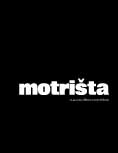

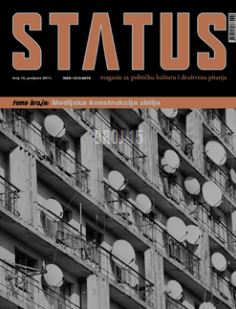
Hrvatska književnost Bosne i Hercegovine u 100 knjiga – spomenik nekompetenciji i megalomaniji
More...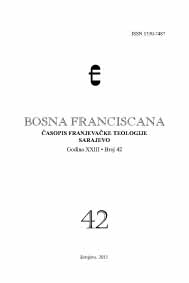
Zbornik radova sa znanstvenoga skupa Matija Divković i kultura pisane riječi održanoga u povodu 400. obljetnice tiskanja Nauka krstjanskoga / Sto čudesa, prve tiskane knjige na narodnom jeziku u Bosni i Hercegovini (1611–2011), Sarajevo, 14. i 15. listopada 2011. godine , Franjevačka teologija – Kulturno-povijesni institut Bosne Srebrene, Sarajevo 2014, 523 str. Marko Semren, Franjevačka karizma u Bosni, Svjetlo riječi, Sarajevo 2014, 351 str. Pero Šimunović, Polemike i kritike, Mostar, 2014, 267 str. Ivan Golub, Pohod milosti, Izabrane pjesme, Školska knjiga i Krš ćanska sadašnjost, Zagreb 2013. Ivan Anđelić, Župe Konjic i Glavatičevo, Hrvatsko kulturno društvo Napredak, podružnica Konjic, Synopsis d.o.o., Sarajevo, Synopsis d.o.o. Zagreb, 598 str. Синиша Мишић, Историјска географија српских земаља од 6. до половине 16. века, Магелан Прес, Београд 2014, 168 str. Ante Vukasović: Na braniku vjere i domovine, uredio: Marijan Krajina, Zvonimir Solin d.o.o., Solin 2014., 268 str Ante Gregov, Jurin, Čovjek koji je razgovarao s krijesnicama, (roman), urednica Žaklina Glibo, Hrvatsko književno društvo, Rijeka 2014.
More...Момо КАПОР: КАКО ПОСТАТИ ПИСАЦ – роман приручник, СКЗ, Београд, 2010 Stjepan SVEDROVIĆ: OBJAVA ZEMLJANIMA, SONETNI PLETER ODA LJUBAVI, Organika, Zagreb, 2014. Бранислав ВЕЉКОВИЋ: УЗВОДНО ОД АНЂЕЛА, Просвета, Београд, 2013 Žarko MILENIĆ: ZASLUŽNI GRAĐANIN, Orion, Rijeka, 2013. Милутин ЂУРИЧКОВИЋ: ПИСЦИ И ДЕТИЊСТВО, Легенда, Чачак, 2012. Ljiljana BULAJIĆ: FREJA, Adresa, Novi Sad, 2014. Bardhyl MALIQI: CARSTVO PTICA, preveo s albanskog Šahin Hasani – Škoza, August Šenoa, Zagreb, 2013. Цвијетин РИСТАНОВИЋ: ВРЕДНОВАЊЕ КЊИЖЕВНОГ ТЕКСТА, Свет књиге, Београд, 2014. Žarko MILENIĆ: MAJKA KAMENA, Matica hrvatska, Osijek, 2009. Neda ČAJEVIĆ: NA RAZMEĐU VREMENA I SVJETOVA, Književni klub Brčko distrikt, 2014. Enisa BUKVIĆ: JA, MI, DRUGE, Fuoco Edizioni, Rim, Italija, 2014. Петар МИЛАТОВИЋ: СУНЦОКРИЛИ НЕБОСКЛОНИ, Удужење књижевника ПОЕТА, Београд; Српски културно-информативни центар, Беч; Словословље, Беч, 2014. BASNOSLOVLJENJE ŽIVOTA Zvonko ČULINA: ŽIVOT(H)INJ(IC)E, Gradska knjižnica Benkovac, 2014. Nikola ŠIMIĆ TONIN: MOJ OTAC, MUŽ MOJE ŽENE, Hrvatsko književno društvo, Rijeka, 2015. Раде ЈОЛИЋ: НИЈЕМА ПЈЕСМА, Стихом говорим, Бијело Поље, 2014. Vasil TOCINOVSKI: SUŠAČKO POPODNE, preveli s makedonskog Višnja Hristodulov i Bojan Jovanovski, Hrvatsko književno društvo, Rijeka, 2010. Vasil TOCINOVSKI: MOST OD DZUNICA, Hrvatsko književno društvo, Rijeka - Akademski pečat, Skopje, 2011. Peter SEMOLIČ: LICE U OGLEDALU, preveo Robert VRBNJAK, Književni klub Brčko distrikt BiH, Brčko, 2014. Žarko MILENIĆ: ZASLUŽNI GRAĐANIN, Orion, Rijeka, 2013. Suvad ALAGIĆ: U OGLEDALU VJEČNO BITI, Književni klub Brčko distrikt BiH, 2014. Jovanka STOJČINOVIĆ NIKOLIĆ: TRINAESTI STEPENIK, Zavod za udžbenike i nastavna sredstva, Istočno Sarajevo, 2014.
More...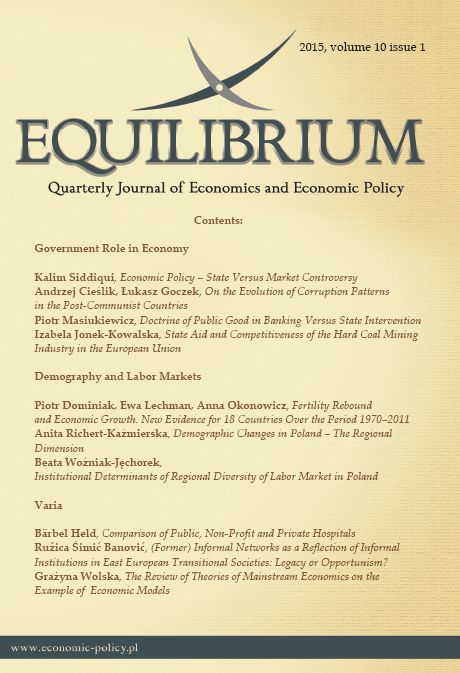
Keywords: informal networks; institutional interaction; transition; Eastern Europe; post-socialism
Only recently has the influence of culture on economic development been increasingly discussed among theoretical economists. Besides observing culture through cultural traditions inherited from ancestors, current social interactions are also considered as an influential factor. Over a long period of time, the research on East European transitional societies has been focused on formal institutions. Throughout that period, informal networks, many of which originated from the previous socio-political system, have mostly strengthened their position in the society and gained power in the formal structures. They helped in building the new capitalist states and therewith had positive effects by speeding up the transition process. Yet, in medium and long term, their activities typically resulted in state capture.This paper explores the persistence of tight informal and mostly inefficient formal business-government-society relations in Eastern Europe. It emphasises the influence of informal networks in the interaction of formal and informal institutions, and questions the possibility of new generations to make a turnaround in the functioning of the networks. Newly emerging social interactions are contextualised in the cultural dimensions: Power Distance and Collectivism versus Individualism. This paper argues that even when informal communities solely serve their own opportunistic purposes, the prevailing collectivist culture in the society provides tacit support to their existence and therewith delays the transformation from relation-based to rule-based governance. The empirical findings confirm the oversocialised view of the society and networks suggested by economic sociologists. Additionally, the changes in transitional institutional environment are deemed to be in line with the claims of institutional economists on durability and impact of informal institutions.
More...Keywords: Identification of toxic;matters in wines ; method of Atomic Absorption Spectrophotometry (AAS)
1. Objective: Quality wines are produced in our country. The main objective of this paper was identification of toxic matter, heavy metals and minerals in wines as final produce, with a view of improving nutritional quality of our wines, produced in 2008-2009. Another important fact for this research was the determination of the presence of remnants from protective solutions containing toxic elements (Cu and Pb)12. 2. Duration of the research exercise: The research took a nine-month period, starting from April 1, 2009 and until December 15, 2009. 2.1. Sampling: The samples for analysis were taken in cellars of private producers in Rahovec, Krusha Vogel and Gjakova, in the presence of sanitary inspectors of Prizren and Peja, and the officials of the Wine Institute in Rahovec, which is part of the Ministry of Agriculture. 2.2. Marking samples Five (5) types of white wine and eight (8) types of red wines were taken, a total of thirteen (13), for analysis, as provided below2: White wines: Chardonnay 2009, Rigne Riesling 2009, Italian Riesling 2009, Cabernet Sauvignon 2009, Smederevka 200
More...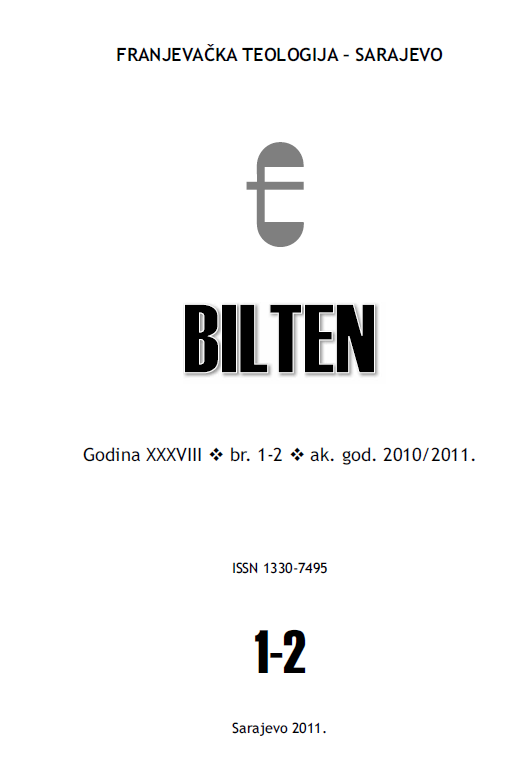
PROFESORI I PREDMETI (zimski i ljetni semestar ak. god. 2010/2011) STUDENTI TEOLOGIJE (Zimski semestar ak. god. 2010/11) STUDENTI TEOLOGIJE (Ljetni semestar ak. god. 2010/11)
More...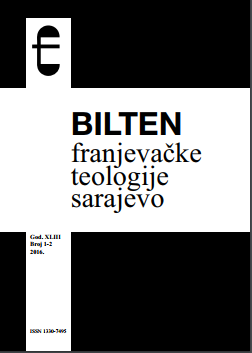
PROFESORI I PREDMETI (zimski i ljetni semestar ak. god. 2015/2016) STUDENTI TEOLOGIJE (Zimski semestar ak. god. 2015/16)
More...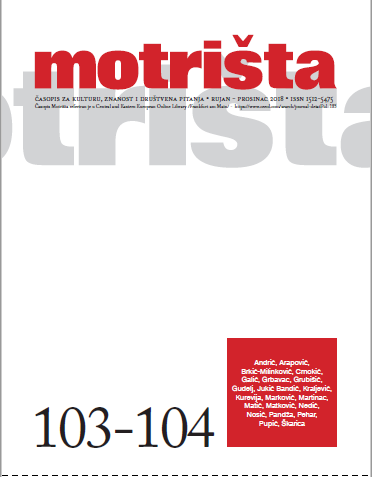
Keywords: Martin Prcela;
Review of: Vesna NOSIĆ - Martin Prcela, Dicta collectanea/ Zbirka misli, Gimnazija “Matija Mesić”, Slavonski Brod, 2018.
More...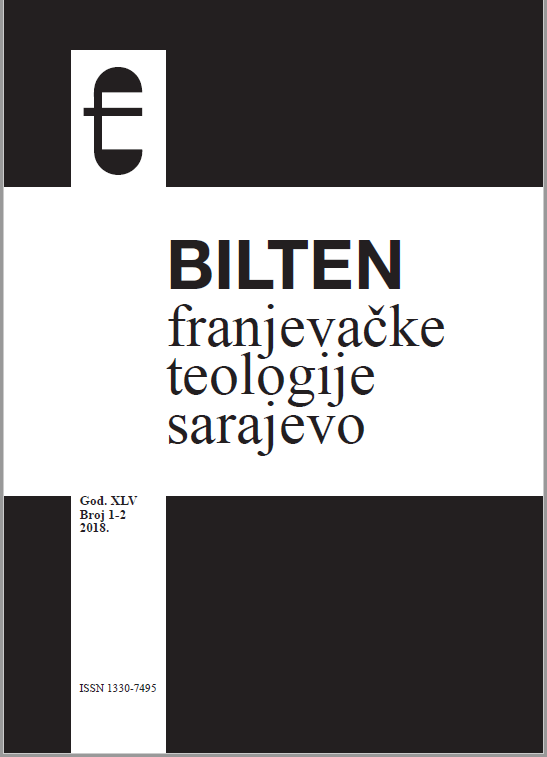
Keywords: theology; Franciscans; higher education;
More...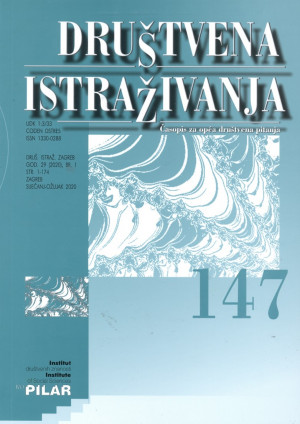
Keywords: dimensions of temperament; initial biological attraction; temperament compatibility; love partners;
Fisher's model assumes four biologically determined temperament dimensions. Exploring their role in the initial stage of dating, compatibility of the two dimensions was established. More specifically, for individuals with the expressed dimension curious/energetic and/or cautious/social norm compliant, it is more likely that they will choose for their date a person whose dimension corresponds to their temperament dimension. For analytical/tough-minded individuals, it is more likely that they will choose a person whose dimension is prosocial/empathetic and vice versa (Fisher et al., 2010b). Starting from the above, the aim of this research was to test the temperament dimensions relationship on a sample of 276 couples who have been at least a year in a relationship. Correlation analyses of the results of couples who are in a relationship have confirmed the expected relations between their dimensions. A medium positive relationship was obtained for the dimension cautious/social norm compliant, while a low but significant positive correlation was confirmed for the dimension curious/energetic.
More...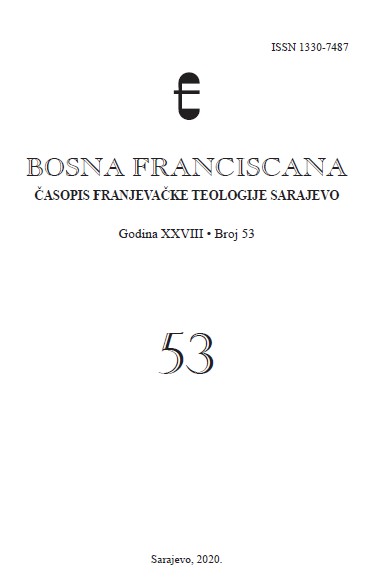
Keywords: Bibliography; Bosnia and Herzegovina; The Ottoman Empire period; Bosna franciscana;
More...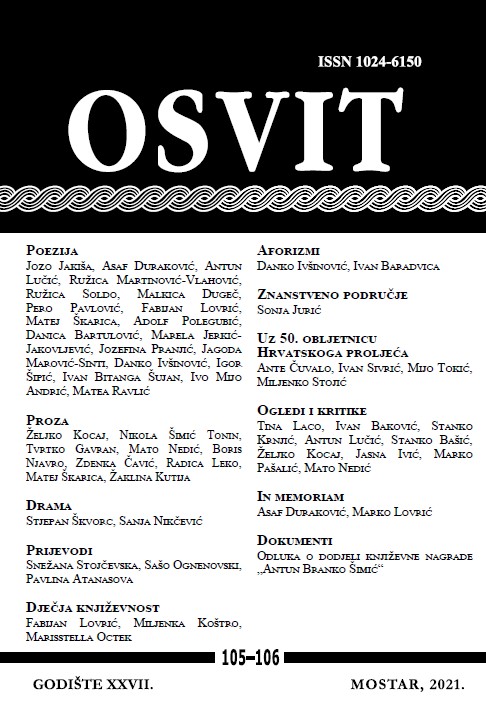
Keywords: Radica Leko; Croatian literature; Literary works of Radica Leko;
Review of: Stanislav Bašić - Književna srijeda DHK HB, Mostar, 24. ožujka 2021., gost književnica Radica Leko
More...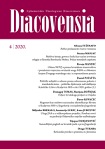
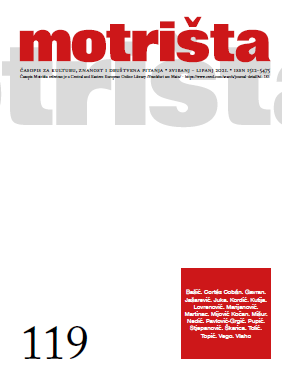
Keywords: Radica Leko; Croatian literature; Mostar; Literary Wednesday;
Književna srijeda u DHK HB, Mostar, 24. ožujka 2021., gošća: književnica Radica Leko
More...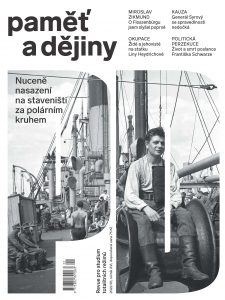
Keywords: concentration camps; memories; coming to terms with the past;
By coincidence my brother came across an article on the internet, entitled “Camp Madonnas”, in your magazine, which mentioned the story of our mother, Bohuslava Mutinová, nee Machová (1914–1994). It was known in the family that she had probably given birth to a daughter in Ravensbrück, but this was something we never spoke about.
More...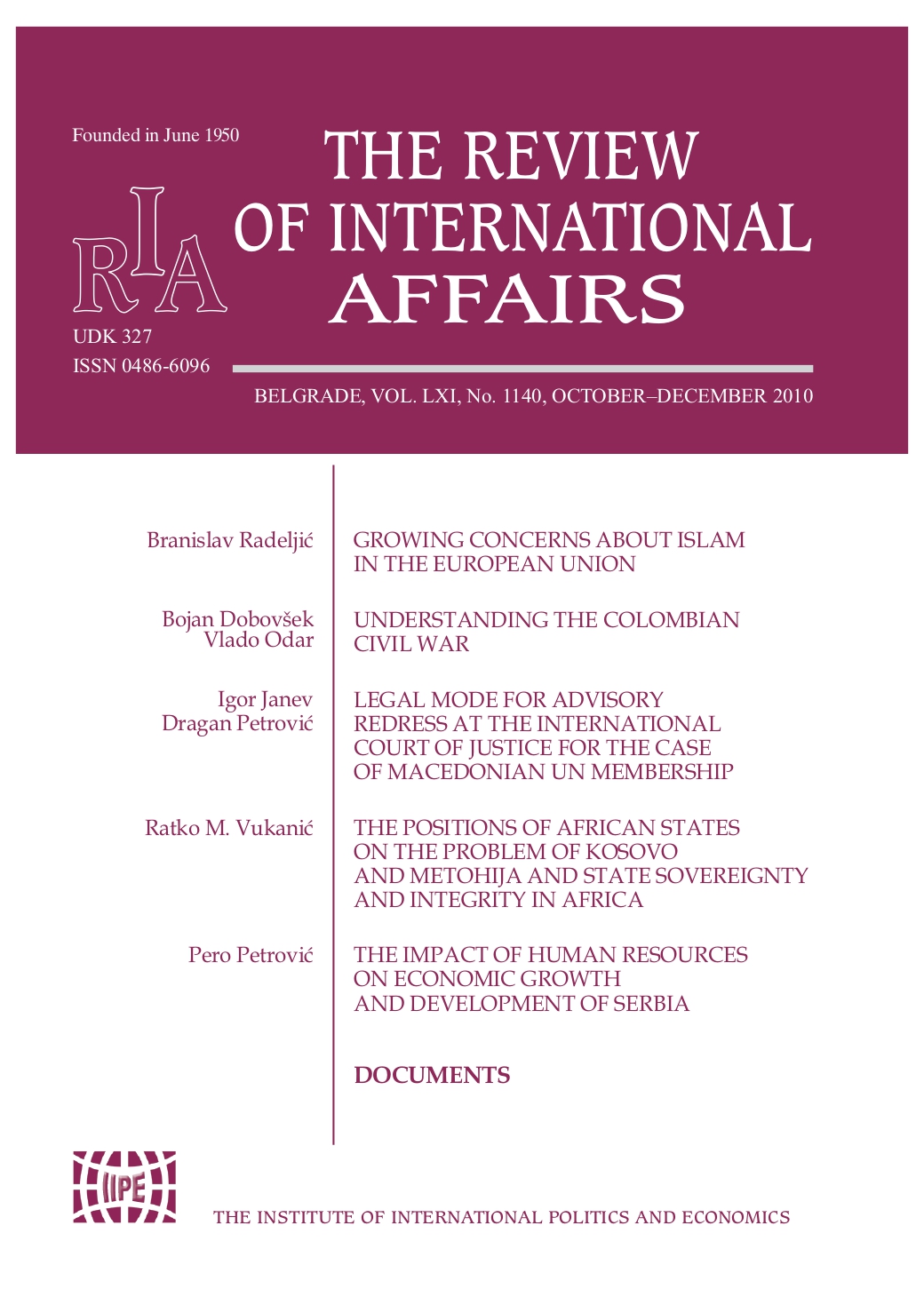
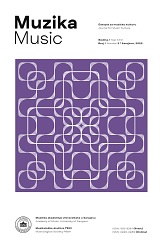
Keywords: Paša Gackić; music; opera; Sarajevo Music Academy; art; vocal pedagogy;
Paša Gackić završila je Osnovnu i Srednju muzičku školu u Sarajevu na Odsjeku za solo pjevanje i Teoretsko-nastavnom odsjeku (1968). Iste godine se upisuje na Muzičku akademiju u Sarajevu na Odsjek za solo pjevanje u klasi prof. Brune Špiler i diplomira ocjenom 10 (1973), te kao stipendistica Republičke zajednice za kulturu upisuje postdiplomski studij: Koncertni i Operski smjer na Muzičkoj akademiji u Sarajevu kod prof. Brune Špiler i završava oba smjera najvišom ocjenom 10.
More...